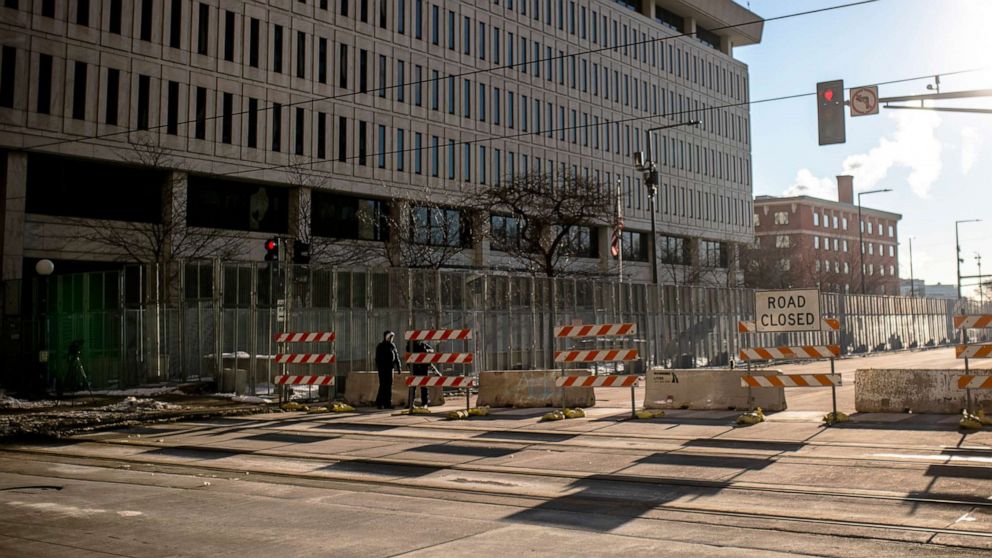Prosecutor says cops made 'conscious choice' not to protect George Floyd
Opening statements got underway Monday in the federal trial of three former Minnesota police officers charged in the death of George Floyd with a prosecutor telling the jury the defendants "made the conscious choice over and over again" not to protect the 46-year-old Black man.
Fired Minneapolis police officers J. Alexander Kueng, 28, Thomas Lane, 38, and Tou Thao, 35, are fighting charges stemming from their alleged roles in the deadly confrontation with Floyd who their one-time senior officer, Derek Chauvin, was convicted of murdering.
The trial, expected to last two to four weeks, is being held at the Warren E. Burger Federal Building in St. Paul.
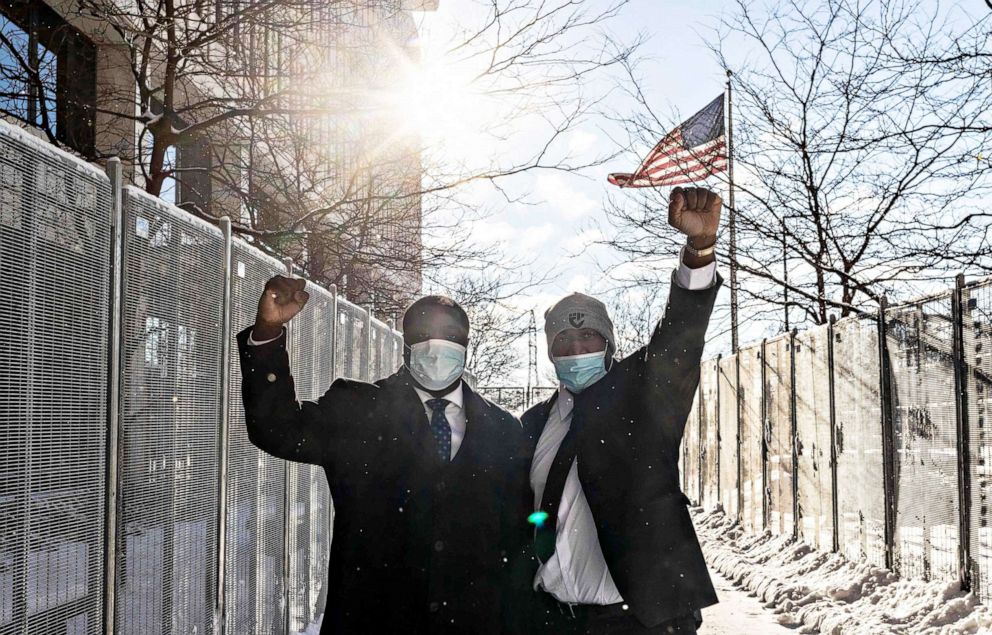
The trial got underway just after 10 a.m. with U.S. District Court Judge Paul Magnuson swearing in the jury before calling on a federal prosecutor to give the first opening statement.
"In your custody, in your care," Assistant U.S. Attorney Samantha Trepel told the jury, reading from the Minneapolis Police Department's policy on how officers should treat people once taken to custody. The prosecutor added that it's "not just a moral responsibility, it's what the law requires under the U.S. Constitution."
Trepel said the defendants were all trained in cardiopulmonary resuscitation, yet took no action to help save Floyd's life as he claimed at least 25 times that he could not breathe, was rendered unconscious and lost a pulse.
"Here on May 25, 2020, for second after second, minute after minute, these three CPR-trained defendants stood or knelt next to Officer Chauvin as he slowly killed George Floyd right in front of them," Trepel said.
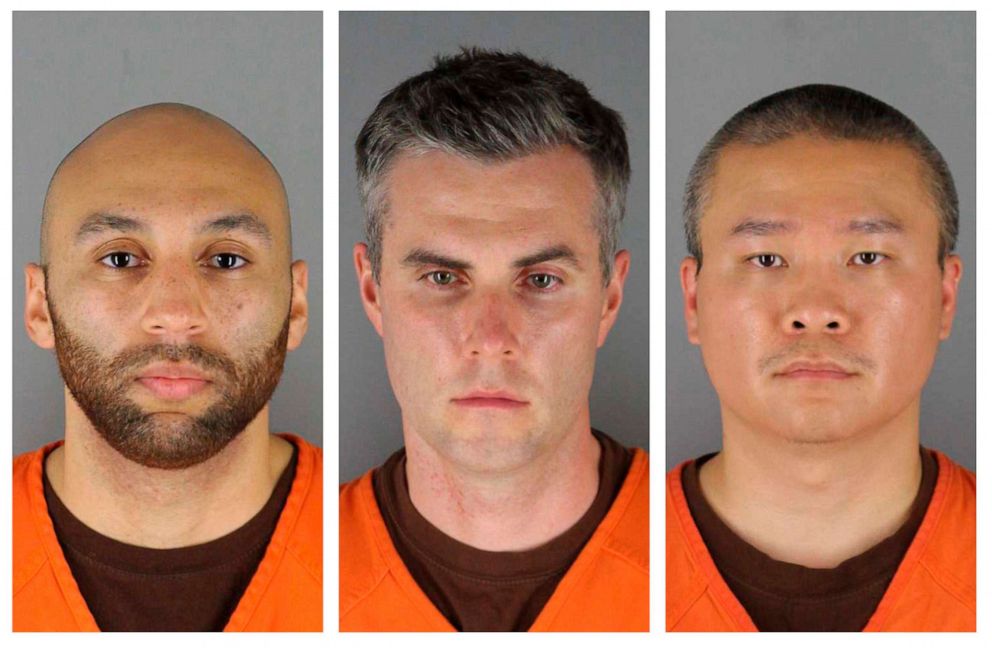
She added that the officers each made the "conscious choice over and over again" not to act to protect a man they had in handcuffs and pinned to the pavement.
Trepel noted that in one of the videos of the episode, Tao, who was trying to keep a crowd at bay, was standing next to Chauvin but failed to stop the excessive force, rather telling witnesses, "This is why you don't do drugs, kids."
The prosecutor said Keung was kneeling on Floyd's back the whole time and did nothing to stop Chauvin's excessive use of force, even two minutes after he could not find Floyd's pulse and after an ambulance crew arrived and could not detect a heartbeat.
Trepel said that despite being rookie cops, Lane and Keung had been extensively trained for 1 1/2 years, both being taught at the police academy many times to turn a subject onto their side when they are having trouble breathing.
"We will ask you to hold these men accountable for choosing to do nothing and watch a man die," Trepel told the jury
Attorneys for each of the defendants are expected to follow with their own opening statements to the jury.
Following Trepel's statement, Kueng's attorney, Thomas Plunkett, made a motion for a mistrial, arguing that some of what Trepel's told the jury was more argumentative than a preview of the evidence the prosecutors intend to present over the course of the trial.
Magnuson denied the motion.
Thao's attorney, Robert Paule, acknowledged in his opening statement that Floyd's death was a tragedy, but added, "a tragedy is not a crime."
Paule told the jury that he expects the prosecution to lean heavily on the video evidence in the case, including footage taken by witness Darnella Fraizer, the then 17-year-old, who began recording when the officers already had Floyd handcuffed and prone on the ground. Paule told the jury that the video doesn't tell the whole story and noted that Floyd was struggling and resisting the officers prior to Fraizer and other witnesses filming the encounter.
Paule told the jury that after hearing the evidence, the only verdict justified will be not guilty on all counts.
Keung's attorney, Tom Plunkett, said Keung and Lane had only completed five shifts on the job by the time they became involved in Floyd's fatal arrest and deferred to Chauvin, their field training officer with 19 years of law enforcement experience under his belt.
Plunkett said a field training officer "has great control over a young officer's future in the Minneapolis Police Department."
He said Chauvin was clearly in charge of the incident even though Lane should have been because he was the senior officer in the first squad car to arrive at the scene.
Lane's attorney, Earl Gray, called the government's case against his client a "perversion of justice."
Gray said Floyd measured 6-foot-4 and 225 pounds and put the officer in a "scary" scenario when he struggled with them.
"He was all muscle," Gray said of Floyd.
He said Lane "was totally concerned and did everything he could possibly do to help George Floyd." He said Lane asked Chauvin and Kueng if they should turn the man on his side to help him breathe, but his suggestions were rejected.
"Not deliberatively indifferent about his health at all," Gray said of Lane's reactions during the episode.
Gray told the jury that Lane will testify during the trial.
Attorneys for the Floyd family released a statement earlier saying the trial is "another milestone in the long, slow journey to justice for George Floyd and his family."
"This trial will be another painful experience for the Floyd family, who must once more relive his grueling death in excruciating detail," the statement from the family's attorneys said.
The 18-member jury, including six alternates, was impaneled in just one day, chosen on Thursday from a pool of 256 potential jurors. The jury is comprised of 11 women and seven men, none of whom are Black.
All three defendants are charged with using the "color of the law," or their positions as police officers, to deprive Floyd of his civil rights by allegedly showing deliberate indifference to his medical needs as Chauvin dug his knee in the back of a handcuffed man's neck for more than 9 minutes, ultimately killing him.
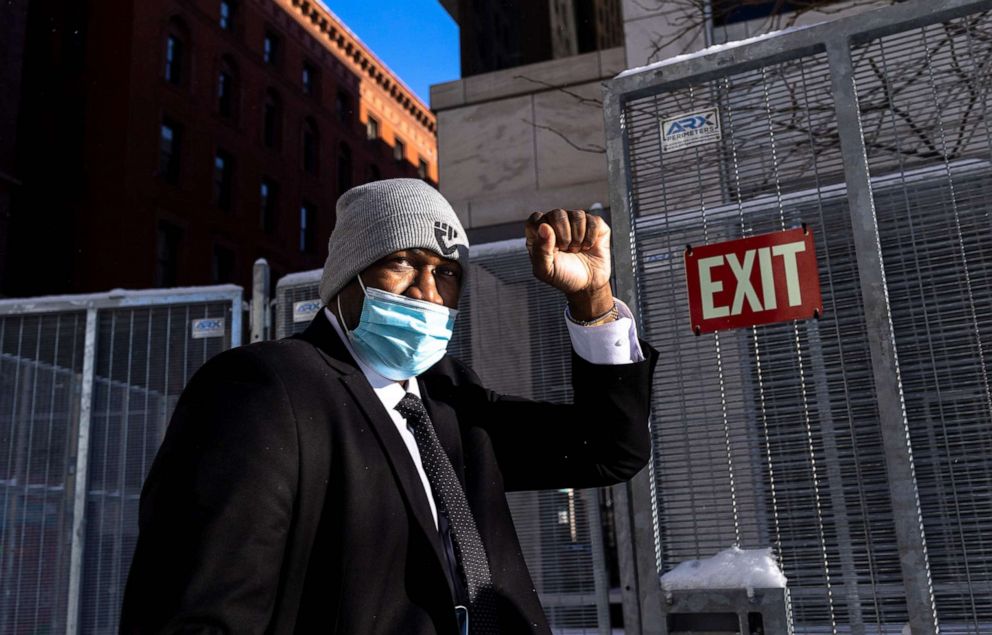
Kueng and Thao both face an additional charge alleging they knew Chauvin was kneeling on Floyd's neck but did nothing to intervene to stop him. Lane, who was heard on police body camera footage asking if they should roll Floyd on his side to help ease his breathing, does not face that charge.
Kueng, Lane and Thao have pleaded not guilty.
Opening statements in the trial commenced a little over a month after Chauvin, 45, a former Minneapolis police officer, pleaded guilty to federal civil rights charges stemming from Floyd's death and the abuse of a 14-year-old boy he bashed in the head with a flashlight in 2017. He admitted in the signed plea agreement with federal prosecutors that he knelt on the back of Floyd's neck even as Floyd complained he could not breathe, fell unconscious and lost a pulse.
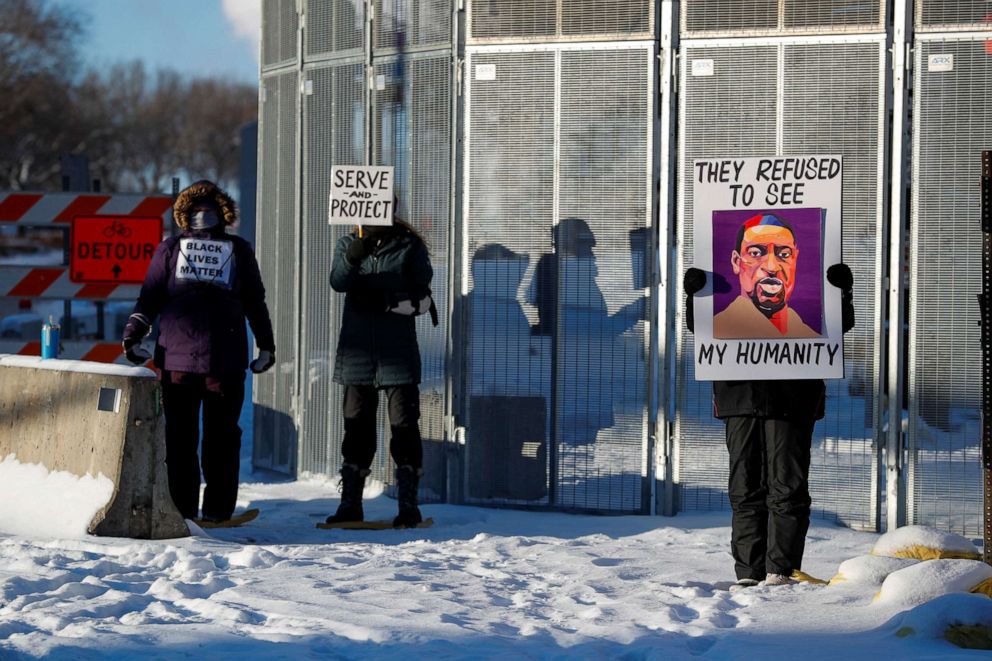
The guilty plea came after Chauvin was convicted in Minnesota state court in April of second-degree unintentional murder, third-degree murder and second-degree manslaughter. He was sentenced to 22 1/2 years in prison in the state case and is facing an even stiffer sentence in the federal case.
Kueng and Lane were rookies being trained by Chauvin at the time of Floyd's fatal arrest.
The May 25, 2020, police encounter with Floyd, who was accused of using a counterfeit $20 bill to buy cigarettes at a convenience store, was recorded on video from start to finish and included multiple angles taken by bystanders with cellphones, police body cameras and surveillance cameras.
The footage showed Chauvin grinding his knee into the back of Floyd's neck for 9 minutes and 29 seconds while Kueng helped keep Floyd down even after he stopped resisting by placing his knee on the man's back and holding and lifting one of his handcuffed hands. Lane, according to the videos, held down Floyd's feet.
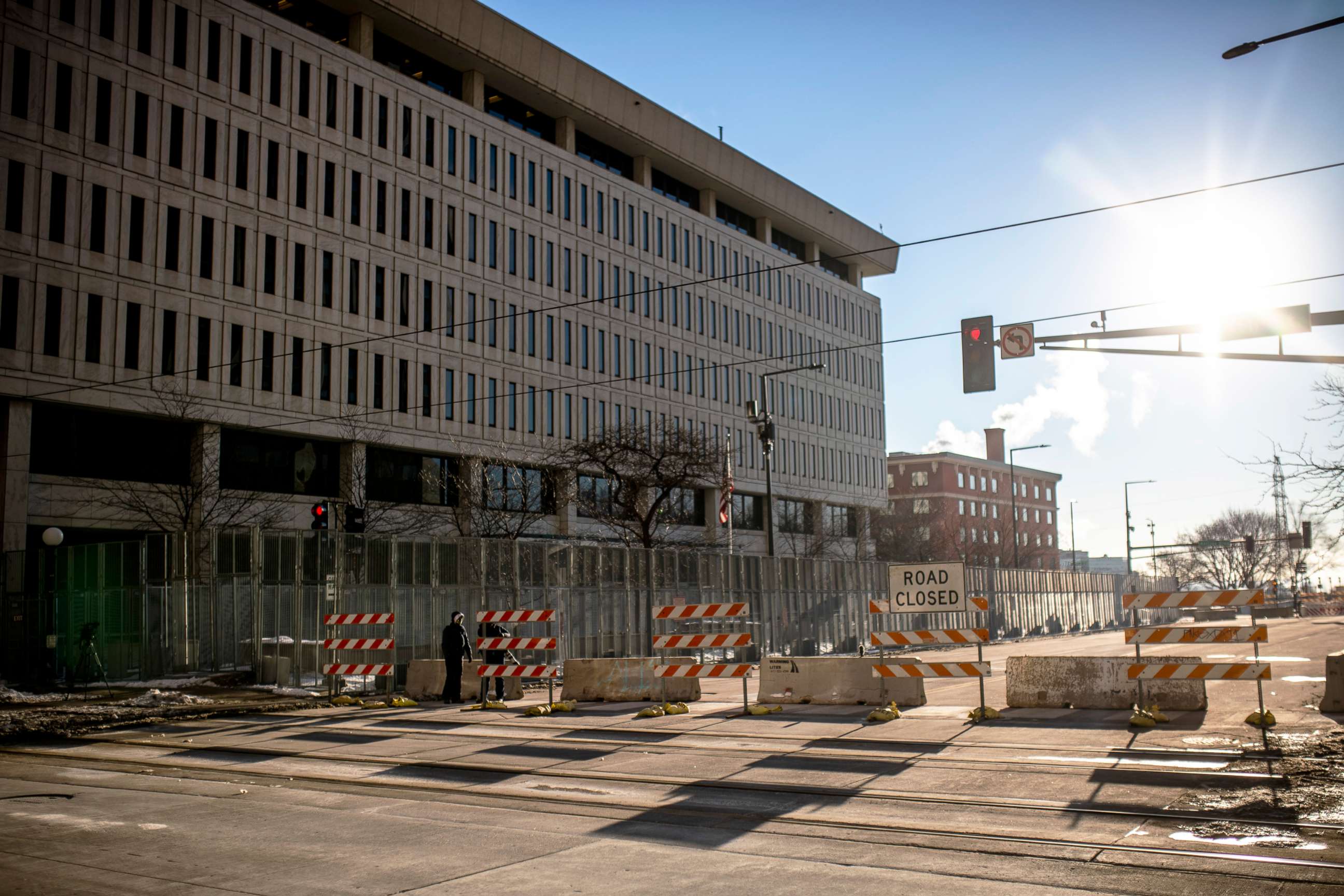
Thao, according to footage, stood a few feet away, ordering a crowd to stand back despite several witnesses, including an off-duty firefighter, expressing concern for Floyd's well-being.
Following the federal trial, Lane, Keung and Thao are facing a state trial on charges arising from Floyd's death of aiding and abetting second-degree murder, and aiding and abetting second-degree manslaughter.
The three defendants have pleaded not guilty to the state charges.
ABC News' Janel Klein contributed to this report.
